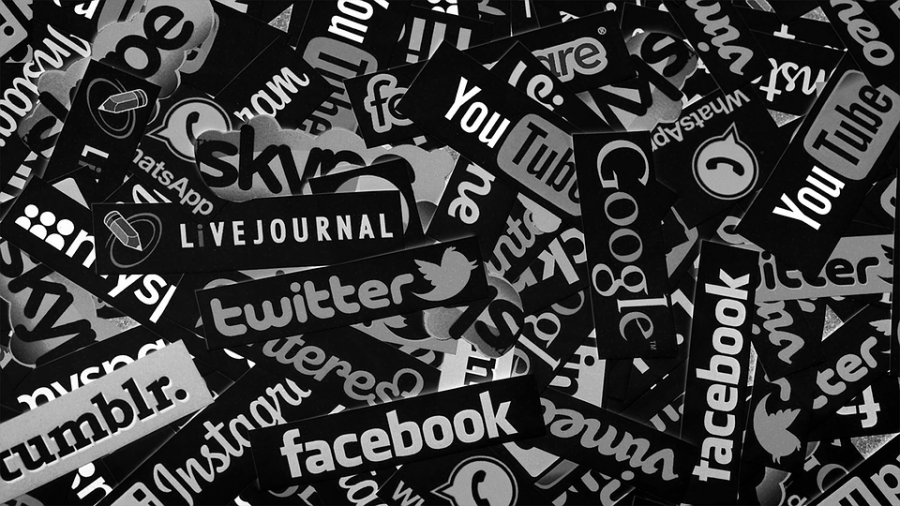Bringhurst: Do More Research to Prevent the Spread of Russia-Ukraine Misinformation
March 22, 2022
The war in Ukraine continues to escalate. Unfounded claims and inflammatory videos have flooded the internet, facilitated by both Russian trolls and Westerners looking to go viral. With this war in particular, misinformation is playing a crucial role.
After two tumultuous presidential elections and a global pandemic that polarized the meaning of truth, American society should have learned something about online misinformation. However, that doesn’t seem to be the case so far. Standing on the outskirts of a global conflict, misinformation poses a threat to our relationship with truth and global connection. With fact-checking abilities at our fingertips, everyone has a personal obligation to ensure factuality.
Misinformation is a Slippery Slope
Social media platforms almost immediately became live video documentation of war in Ukraine as Russia initiated bombings in Kyiv. One video falsely claimed that 13 soldiers had died, stealing audio from a Ukrainian news outlet reporting that Russian officials asked the soldiers to surrender.
Those in support of Ukraine may think that as long as fake footage looks similar enough to real events it still raises awareness. But giving credence to misinformation is a slippery slope. We can’t normalize accepting any video as fact without a level of skepticism. As technology advances, so does the potential for harmful misinformation to spread. Deep fakes and targeted algorithms ensure that media users will encounter increasingly more falsified videos and posts.
Russia itself poses as an example of a society intentionally detached from the truth, and the result is evident in the Kremlin’s forced regime. Earlier this month, Russia criminalized reports that contradict the Kremlin’s state-sponsored media depiction of the war. These restrictions forced several independent news organizations to shut down, and protestors in Russia were imprisoned. Meanwhile, Kremlin media has deliberately spread lies to Russian citizens, claiming Ukrainians were the aggressors and labeling bomb victims as crisis actors.
Putin’s authority depends on a repeated and intentional spread of disinformation. He actively suppressed the truth relating to the missing MH17 flight in 2014, and after imprisoning his sole political opposition in 2021. “Propaganda works when it coincides with your existing assumptions,” said Pierre Vaux, a senior investigator at the Center for Information Resilience to the New York Times. Russia’s older generation has not forgotten the prosperity and stability Putin brought to Russia after a financial crisis, which makes them more susceptible to his fabricated truth. Now, this lack of skepticism may be the only thing fueling Russian support for the war in Ukraine.
The Potential for Global Connection
Misinformation is a crucial tactic in war. During the first World War, the U.S. Congress passed The Espionage and Sedition Acts, which criminalized any “disloyal, profane, scurrilous, or abusive language” about the U.S. government or military. Making decisions during war relies on information. When one side successfully misinforms the other side, or even misinforms their own citizens to gain support, they become one step closer to victory.
With access to the internet, we now have the potential to deconstruct this war tactic and render it ineffective. Any person across the globe could potentially come to the same accurate conclusions with diligent truth-seeking.
We have the potential to be the most globally-connected generation. We can empathize with Ukrainians and watch their first-hand documentation of war. But that is meaningless if we aren’t valuing their truth.
Your Responsibility
Accepting misinformation, whether ill-intentioned or not, devalues truth. It devalues the reality Ukrainians currently live in. 6.5 million people have been internally displaced in Ukraine as of March 17. At least 816 civilians have been killed. Families are torn apart and Putin has manipulated the press to maintain public support. Checking your facts is the least you can do on an individual level. And on a larger scale, it amounts to a lot.
Information travels fast during war and claims are made faster than news can properly verify them. Many young people get their news from social media. This isn’t inherently bad, but it means misinformation has the potential to impact young people disproportionately. But young people also have the tools to better identify misinformation.
Online tools like Google Earth and reverse image search allow anyone to independently locate where and when a video was taken. While this can be time consuming, you can at least acknowledge your responsibility to prevent unverified claims from spreading by not engaging with inflammatory content. Scroll by and seek out truth from a reliable news outlet. Don’t buy into media designed to get a reaction — instead support media designed to keep you informed.
We have the incredible ability to connect with people in Ukraine. It makes war seem more real for those of us who have never experienced it first-hand. The internet has the potential to make us more globally engaged citizens. But without recognizing the danger and taking steps to combat it, we risk becoming the most misinformed generation in history.








